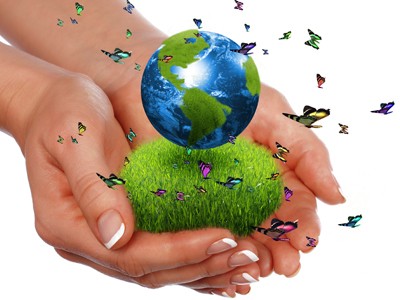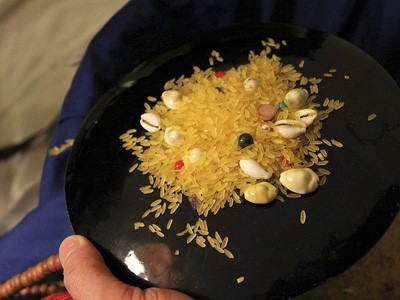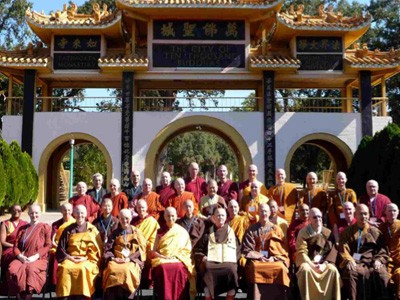Transforming to a global village of harmony and peace

“Transforming to a Global Village of Harmony and Peace” was the theme of Singapore’s first holistic wellness symposium in September 2009, organized by Eco-Harmony, a social enterprise of Kampung Senang Charity and Education Foundation. This article appeared as the foreword to the symposium program.
It is not enough to be compassionate. You must act. There are two aspects to action. One is to overcome the distortions and afflictions of your own mind, that is, in terms of calming and eventually dispelling anger. This is action out of compassion. The other is more social, more public. When something needs to be done in the world to rectify the wrongs, if one is really concerned with benefiting others, one needs to be engaged, involved.—His Holiness the Dalai Lama
It’s a radiant vision; to promote wellness for all beings on the planet, Kampung Senang and Eco-Harmony are inviting a synergistic movement to transform our global village—our world—into a place of harmony and peace.
It’s a bold call that has the potential to galvanize action towards healing on personal and planetary levels. Or it could, as some gatherings have done, end with everyone feeling good and nothing getting done.
Our potential as human beings is vast—far greater than we imagine—and we must hold an expansive view of positive possibilities in order to achieve them. As His Holiness the Dalai Lama suggests, movement toward such a goal requires a two-pronged commitment: to develop harmony and peace in our own hearts and minds, and to use our compassion to fuel actions to benefit others.
Whether or not this symposium inspires actual transformation depends on every one of us coming with an open mind, an open heart, and a commitment to change ourselves in order to change the world.
Let’s examine the invitation from Kampung Senang.
Transforming
Transform means “to make a thorough or dramatic change in the form, appearance, or character of something.” Surely our world needs such a change … and it begins inside each of us.
When we see a problem, we are naturally inclined to think that its cause and solution lie somewhere “out there,” and there’s plenty of evidence for that. The disparity between rich and poor—individuals and nations—continues to widen, breeding terrible suffering and discontent on both ends of the spectrum. We are rapidly consuming the earth’s natural resources, and the dangers of climate change are widely acknowledged. The horrors of war grow as modern weapons become more diabolical and devastating.
How does transforming myself affect these challenging global concerns? Every possible human cause of these difficulties has corresponding seeds in each of us.
The hostility that fuels the Middle East conflict is the same hostility that fuels the household argument over breakfast. We address war in the world by committing to end war in our homes, schools, and work places.
The greed that fuels the risky investments that threaten global economies is the same greed that fuels personal consumption of fashion, electronics, and entertainment. We promote global harmony and peace by cultivating contentment with what we have, overcoming our own craving for more and better.
The closed-mindedness, laziness, and confusion that thwart efforts to eradicate hunger, reduce waste, and decrease toxic emissions is the same laziness, closed-mindedness, and confusion that stop us from recycling our plastic water bottles at the office.
By not curbing the expression of anger, greed, and ignorance in ourselves, we contribute to—rather than help to heal—the miseries of the world.
Global village
Futurist Marshall McLuhan coined the term “global village” to describe a world grown smaller by modern advances in communications. He predicted the Internet, likening it to an extended central nervous system ultimately linking everyone in the world.
Human beings have always been interdependent, but today that fact is clearly evident. And it’s not just individuals—whole nations are involved. Our economies are intertwined. Clean air, clean water, wholesome food, and public health are not just local issues. News travels in an instant, and we hear the cries and see the faces of the world’s suffering on the evening news.
The “village” concept implies people working together for the common good, meaning that our concern for the health and wellness of every villager is equal to our own. If we train ourselves to think that we are like an interconnected nervous system, we will respond to one another’s needs as spontaneously as our hand removes a thorn from our foot.
It takes persistent commitment to think this way. How do we do it? By continuously contemplating that all living beings—ourselves and others—are no different in wanting happiness and not wanting suffering. Since everyone equally desires and deserves happiness, we should work for the happiness and amelioration of suffering of all living beings.
Harmony
Harmony is the combination of simultaneously sounded musical notes to produce a pleasing effect and consistent whole. Harmony arises when many voices unite in a common theme. Musicians know that the recipe for resonant harmonies is 90% listening and only 10% singing. In harmony, every voice contributes a part while listening to its place in the whole. No one dominates, no one hides out—but all may contribute differently at times.
The opposite of harmony is discord, which comes when people don’t listen to each other, when they are determined to go their own way at any cost, when “I’ll do it my way” becomes the theme in every person’s tune.
Working towards harmony is the only way to include the multiplicity of cultures, ethnicities, and religions that comprise our world—locally and globally.
Heartfelt listening is a learnable skill that invites every voice to be heard. It starts with a dose of humility, by being more interested in what others have to say and less focused on expressing ourselves. In that way, we become open to learning from everyone. As we practice it around the dinner table and in our staff meetings, we contribute to harmony among all peoples.
Peace
Peace has many meanings, all of which help to complete this vision: freedom from disturbance; quiet and tranquility; mental calm and serenity; freedom from or the cessation of war or violence; freedom from civil disorder; freedom from dispute or dissension between individuals or groups.
But once again, the only guarantee of finding the peace we crave is to foster it in ourselves. In the quote above, His Holiness suggests the first step—to overcome the distortions and afflictions in our own minds. How? We begin by calming our own anger, frustration, self-righteousness, and bad moods, recognizing how these poison our relationships, then replacing these with thoughts of gratitude and love by recalling, again and again, the kindness we have received from friends, relatives, teachers, and even strangers.
We focus on subduing our craving for pleasure, for gain, for praise, and for popularity or fame by paying attention to the preciousness and fleeting nature of our lives, letting awareness of our mortality help us concentrate on the essential things that make life most meaningful.
We commit to living according to ethical standards that reflect concern for others. We slow down, simplify, and take time to cultivate quiet and serenity in our minds and our lives.
Which brings us full circle, to “transforming”—making a commitment to change ourselves for the well-being of ourselves, our families and communities, and our planet.
All great philosophies teach that we are capable of great things. As individuals we have the potential to transform into beings of harmony and peace. By joining together in this cause, we are capable of contributing powerfully to the welfare of everyone in our global village.
Let’s make that commitment and unite joyfully to make that vision a reality.
Venerable Thubten Chonyi
Ven. Thubten Chonyi is a nun in the Tibetan Buddhist tradition. She has studied with Sravasti Abbey founder and abbess Ven. Thubten Chodron since 1996. She lives and trains at the Abbey, where she received novice ordination in 2008. She took full ordination at Fo Guang Shan in Taiwan in 2011. Ven. Chonyi regularly teaches Buddhism and meditation at the Unitarian Universalist Church of Spokane and, occasionally, in other locations as well.


